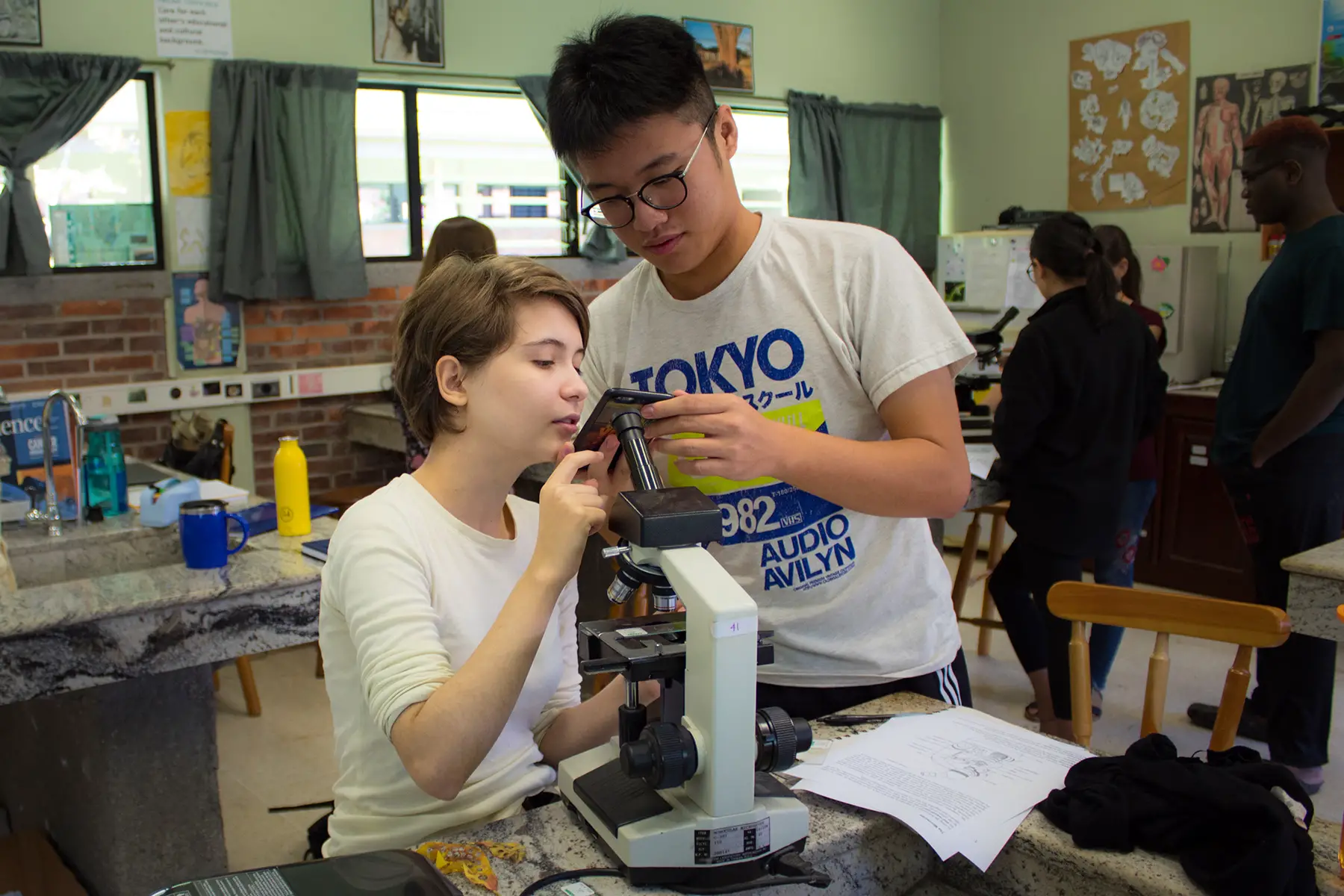When moving to a new country, one of the first choices for many parents is where to educate their children. As well as deciding between private and public schools, parents also have to choose the language of instruction. Concerned that bilingual education will be too daunting, many parents will opt for a school that teaches in their child’s mother tongue.
But bilingual education doesn’t have to be daunting. In fact, multilingual schooling can be one of the most positive influences in your child’s upbringing. To give you an idea of how it could benefit the development of your child, our guide looks at the advantages of bilingual education.
Studycat
Looking for a lively way to get your kids excited about language learning? You need Studycat. The online learning platform’s award-winning, engaging programs make language learning colorful and fun. Choose from five of the world’s most spoken languages and start your little ones on the right track towards bilingualism today with Studycat.
Impressionable young minds
Some parents worry their children are too young to be introduced to a second language, especially if their mother tongue is not yet fully developed. However, over the years there’s been plenty of academic studies that show the exact opposite of this.
Young children are essentially learning machines, and their brains are uniquely able to soak up as much information as possible, regardless of the language. In fact, studies show children’s brains will never be more able to learn a second language than they are between zero and three years.

And while learning languages might seem like a chore for teenagers and adults, for a young child much of their language learning will come organically, through play and social interaction with their peers. It won’t seem like learning, so they’ll pick up the language before they even realize.
Better cognitive development
Research has shown that learning another language at a young age can have lasting benefits for children. One of these benefits is improved executive functions of a bilingual child’s brain, which can be a great advantage later on in their education.
Perhaps surprisingly, the conflict caused by learning two languages at the same time can actually improve a child’s cognitive skills. It does this by forcing the brain to tackle this conflict, giving their mind a unique mental workout at a young age.
The advantages of this are evident in a bilingual child’s ability to multi-task. Learning and speaking in two languages means their mind is constantly having to switch focus. This means they’re better at maintaining focus — even when not dealing with languages directly.
Promotes communication skills
One cognitive function that is particularly pertinent to bilingual education is communication. Learning a foreign language at a young age can dramatically boost a child’s communication skills. This is both in their new language and their mother tongue.

There have been several academic studies that show bilingual children are better at interpreting intent than their monolingual peers. This is because children in multilingual environments are forced to constantly analyze their surroundings to assess which language to use.
Being able to read social cues and being aware of other people’s emotions can be particularly important later on in life. From boosting their job prospects to improving their chances of forming successful romantic relationships, these communication skills can have far-reaching consequences in a child’s life.
Improves societal integration
Many expat parents understandably worry about the effect relocating abroad will have on their children. Some kids will find the transition to a new country and culture traumatic, while others will take to their new surroundings like a duck to water.
However, they react, being able to speak the local language will help them settle into their new home. They’ll find it easier to build friendships with other children. They’ll also start to gain an appreciation for the local culture, whether through music, books, television or films. All this can significantly help their integration into their new lifestyle.
It’s not just your child’s integration that’ll improve thanks to bilingual education, either. Sending your kids to a bilingual school will also help you feel more involved in the local community. Generally speaking, bilingual schools attract a mix of expat and local families. This means you’ll be able to develop your own social circle at the same time.
Better future prospects
Many expat parents focus on the here-and-now of their child’s education, looking at school curriculums and campus facilities. However, some will look at how a certain education can impact their child’s future. This is where the influence of bilingual education cannot be understated.
One unique benefit of learning a second (or third) language early can be seen in a child’s adaptability. This is an increasingly sought-after trait for professionals, and bilingual education can help give your child a unique advantage over the competition.
But the positive influences a bilingual education can have on a child’s future prospects are numerous. From improved communication skills to a better appreciation of cultures and languages different from their own, bilingual education will set them up for life.
Ready for a globalized world
We live in a truly globalized society. The world is more connected than ever before, thanks to technology, communications, and transportation. And, with potential advancements to come, it’s likely the world will become even more globalized in the future.
In an uncertain world, bilingual education is likely to provide your child with the best chance to flourish in this globalized future. From better communication skills to improved cognitive functioning, they’ll get the tools they need to get ahead in life. So, prepare your child for tomorrow with a bilingual education today.






